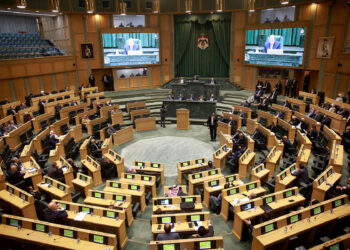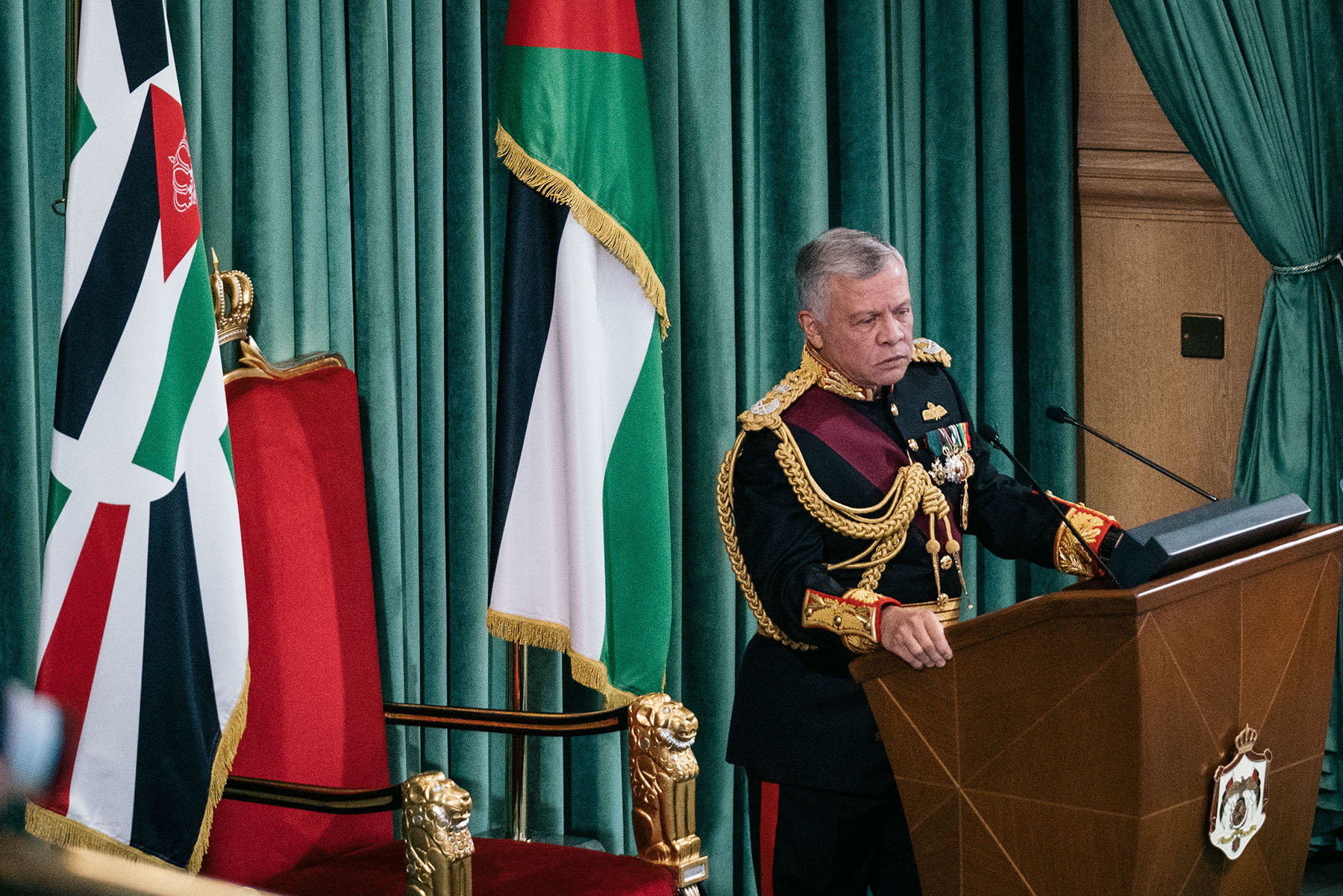Kholood Khair is a Sudanese political analyst and the founding director of Confluence Advisory, a "think-and-do" tank formerly based in Khartoum. She is also a non-resident fellow at DAWN.
The first anniversary of the war in Sudan—the first of possibly many—came and went this week in a wave of lukewarm media attention. Perhaps it is fitting commemoration for a war that has gotten so little media coverage despite creating the world's largest humanitarian crisis, even before events in the Middle East, from Gaza to Iran, dominated newsrooms and policy circles.
At a summit in Paris this week, led by French President Emmanuel Macron and timed with the war's one-year anniversary, international donors pledged more than €2 billion ($2.13 billion) in aid to Sudan. But much of it was previous aid commitments that hadn't been honored, foretelling a dismal fate for these newly committed funds. At the same time, were it not for the Paris pledging conference, there would be little to no new money committed to Sudan at all. Similarly, if not for the donor summit in Paris, heads of U.N. agencies, representatives of international and regional multilateral institutions, and the only head of state besides those in countries neighboring Sudan to actually engage with Sudan's war, in Macron, would not have given this crisis a fraction of the attention it needs at this critical juncture.
What started on that fateful Saturday in April last year as a war between two disgruntled generals soon became a vortex which sucked in other armed actors across Sudan. Gen. Abdel Fattah al-Burhan of the Sudanese Armed Forces (SAF) and Lt. Gen. Mohamed Hamdan Dagalo, universally known in Sudan as Hemedti, who commands the paramilitary Rapid Support Forces (RSF), are former brothers-in-arms who no longer wanted to share their ill-gotten throne following their coup against Sudan's transitional government in 2021. Since the war erupted last year, both opportunistic erstwhile rebels as well as everyday people, either mobilized or recruited by the belligerents or voluntarily picking up arms to protect their families in the absence of state protection, have been drawn into the fighting. This war, in many ways, is an inevitable if deeply unfortunate consequence of almost seven decades of militarized politics in Sudan, where the armed forces, rather than protect the people of Sudan, have instead only ever waged war on them.
The generals at the center of this war relish that the world's attention is elsewhere.
- Kholood Khair
At this one-year mark, the situation in Sudan can scarcely be described as anything short of apocalyptic: conquest, famine, disease and displacement plague the people of Sudan—and the situation is only getting worse. Sudan is no stranger to internal conflict. But almost since the beginning of this war, 80 percent of health centers have been out of commission. More than 19 million children are unable to attend school. The rates of sexual violence, perpetrated especially by the Rapid Support Forces, have only continued to rise. The war economy has quickly taken over, with rapid inflation given the scarcity of food stuffs and lack of imports. And genocidal attacks by the RSF in Darfur as documented in a new report by the Raoul Wallenberg Centre for Human Rights—the likes of which it had perpetrated 20 years ago alongside the SAF—show the harrowing scale of this war. (The RSF emerged from the remnants of the Janjaweed, the Arab militias accused of genocide and war crimes in Darfur.)
Unlike Sudan's past conflicts, in which the capital, Khartoum, was protected, this time, the war could very well precipitate state collapse and compound an already complex humanitarian emergency. The generals at the center of this war relish that the world's attention is elsewhere. Their attempts to convince outside powers that they were fighting for "democracy"—a laughable concept—through frequent appearances on Arabic-language news channels ceased the second week of October, following the Hamas-led attack into southern Israel and the start of Israel's war of retaliation. Away from the glare of the world, Burhan and Hemedti have continued to prosecute their counter-revolutionary war with relative impunity. For them, the timing couldn't have been better. But they needn't have worried, really, since the world had barely been paying attention to Sudan anyway.
The grim paradoxes of this war are evident when remembering that 20 years ago, the genocide in Darfur garnered an official U.S. designation of genocide and became an international cause célèbre, at the same time that the United States was waging its "Global War on Terror" by invading Afghanistan and Iraq and bombing other Muslim-majority countries. But today, despite renewed genocide in Darfur and a famine across Sudan, the world shrugs, and celebrities aren't rallying to "Save Darfur." The international community has apparently still not sufficiently assessed that genocide and famine are indeed underway in Sudan. By the time more data is gathered and any official determination is made, many more people will have been killed as a result of both the famine—in a country that has been a breadbasket for the region—and the genocide against the Masalit and other non-Arab ethnic groups in Darfur, which has only restarted, not started anew.
In the face of such atrocities, displacement and suffering, forgetting is no longer a casual act; it is an intentional one. Forgetting is a privilege. For those inside Sudan and their family and friends abroad, forgetting is not an option.
- Kholood Khair
And so, we have a useful framing of Sudan as a "forgotten conflict," as it has been described often and across media and policy spaces. This is inherently a characterization that privileges the onlooker—that forgetful observer who is perhaps riddled with other concerns, but just not the world's largest humanitarian disaster. It is also an excuse for those whose job is to work toward a resolution of this conflict to, instead, do very little. In the West, this is a direct result of a delusional and hypocritical foreign policy that creates alliances with countries working against the West's stated (but rarely adhered to) principles like respect for human rights. These foreign policy failures have directly led to an abandonment of responsibility toward Sudan and given rise to the bizarre trend of decision-makers cosplaying as helpless advocates, a situation as oxymoronic as it is frustrating. Various international envoys, U.N. officials and world leaders are spending their time bemoaning the state of affairs in Sudan—and elsewhere—rather than exercising the functions of their offices to make the necessary structural changes to address the crisis.
Media and policy attention often go hand-in-hand, but when policymakers publicly lament the lack of media attention on a crisis, they are placing the responsibility on activists—not themselves or other policymakers—to make the requisite changes to address the crisis. And given the lack of attention on Sudan already, Sudanese activists themselves are already faced with a Sisyphean burden of working to maintain attention on their country's plight. A hollow foreign policy that is not rooted in respect for international law or humanitarian principles means that genocide in one context, say Sudan, must be ignored so that the genocide elsewhere could be too, say in Palestine, or Xinjiang.
But in the face of such atrocities, displacement and suffering, forgetting is no longer a casual act; it is an intentional one. Forgetting is a privilege. For those inside Sudan and their family and friends abroad, forgetting is not an option. And the daily, unbearable weight of the anguish of Sudan's people and the unprecedented destruction of their country is one that too many carry while newsrooms turn a blind eye and policymakers shrug.
































![Security forces loyal to the interim Syrian government stand guard at a checkpoint previously held by supporters of deposed president Bashar al-Assad, in the town of Hmeimim, in the coastal province of Latakia, on March 11, 2025. Syria's new authorities announced on March 10, the end of an operation against loyalists of deposed president Bashar al-Assad, after a war monitor reported more than 1,000 civilians killed in the worst violence since his overthrow. The Syrian Observatory for Human Rights said the overwhelming majority of the 1,068 civilians killed since March 6, were members of the Alawite minority who were executed by the security forces or allied groups. (Photo by OMAR HAJ KADOUR / AFP) / “The erroneous mention[s] appearing in the metadata of this photo by OMAR HAJ KADOUR has been modified in AFP systems in the following manner: [Hmeimim] instead of [Ayn Shiqaq]. Please immediately remove the erroneous mention[s] from all your online services and delete it (them) from your servers. If you have been authorized by AFP to distribute it (them) to third parties, please ensure that the same actions are carried out by them. Failure to promptly comply with these instructions will entail liability on your part for any continued or post notification usage. Therefore we thank you very much for all your attention and prompt action. We are sorry for the inconvenience this notification may cause and remain at your disposal for any further information you may require.”](https://dawnmena.org/wp-content/uploads/2025/04/syria-22039885951-360x180.jpg)






